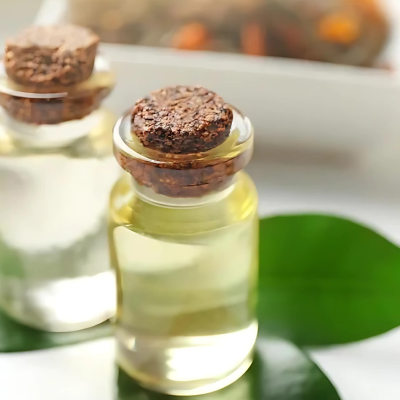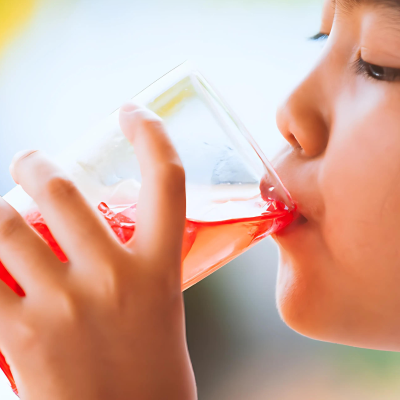Pears are a popular fruit known for their sweet flavor, smooth texture, and nutritional benefits. When it comes to introducing pears into your baby’s diet, there are several factors to consider to ensure it’s done safely and effectively. This comprehensive guide covers when to introduce pears to your baby, the benefits of including them in their diet, and some delicious and nutritious recipes to try.
When to Introduce Pears to Babies
Introducing solid foods to your baby’s diet is an exciting milestone. Pears can be a great choice due to their mild flavor and gentle texture. Here’s a guide to help you determine the right time to introduce pears:
Age to Introduce Pears
- Starting Solids: The American Academy of Pediatrics (AAP) recommends starting solid foods around 6 months of age. By this time, most babies have developed the necessary motor skills and digestive capacity to handle a variety of solid foods.
- Texture Adaptation: At 6 months, you can start with pureed or mashed pears. As your baby gets used to eating solids and their chewing skills develop, you can gradually introduce more textured forms of pears.
Signs That Your Baby is Ready for Pears
Before introducing pears, ensure your baby shows readiness for solid foods:
- Head Control: Your baby should be able to sit up with minimal support and have good head control.
- Interest in Food: They should show interest in eating and reach for food.
- Tongue Thrust Reflex: The tongue thrust reflex, which pushes food out of the mouth, should diminish.
Benefits of Pears for Babies
Pears offer numerous health benefits for babies, making them a nutritious addition to their diet. Here are some key benefits:
1. Easy on the Digestive System
Pears are gentle on the digestive system due to their high water content and fiber. They are less likely to cause constipation compared to other fruits and can help maintain regular bowel movements.
2. Nutrient-Rich
Pears are packed with essential vitamins and minerals:
- Vitamin C: Supports the immune system and aids in iron absorption.
- Vitamin K: Important for blood clotting and bone health.
- Potassium: Helps maintain healthy blood pressure and supports proper muscle and nerve function.
3. Hydrating
With their high water content, pears help keep your baby hydrated. This is especially beneficial when introducing solid foods, as it helps balance fluid intake.
4. Gentle Flavor and Texture
Pears have a naturally sweet flavor and a smooth texture when ripe, making them an appealing option for babies. They are less likely to cause allergic reactions and can be easily combined with other fruits and vegetables.
5. Promotes Healthy Eating Habits
Introducing a variety of fruits like pears early in your baby’s diet can help establish healthy eating habits and a preference for wholesome, nutritious foods.
How to Prepare Pears for Babies
Proper preparation of pears is crucial to ensure they are safe and suitable for your baby. Here’s how to prepare pears for different stages of eating:
1. Choosing the Right Pears
- Ripeness: Select ripe pears that yield slightly to gentle pressure. Unripe pears can be too hard for babies and may cause choking.
- Varieties: Bartlett pears are often recommended for their soft texture and sweet flavor. Other varieties like Anjou and Bosc can also be used but ensure they are fully ripe.
2. Preparing Pears
- Washing: Wash pears thoroughly to remove any dirt or pesticides.
- Peeling: Peel the pear to remove the skin, which can be tough and difficult for babies to digest.
- Removing Seeds: Remove the core and seeds, as these can pose a choking hazard.
3. Cooking and Mashing
- Steaming or Boiling: For younger babies, steaming or boiling pears can soften them and make them easier to mash. Cook until tender, then mash or puree to the desired consistency.
- Raw Pears: For older babies with more developed chewing skills, ripe raw pears can be finely chopped or grated to reduce choking risks.
4. Serving Suggestions
- Purees: Blend cooked or ripe pears into a smooth puree. This is suitable for babies just starting with solids.
- Mashed Pears: For a slightly chunkier texture, mash ripe pears with a fork. This is ideal for babies who are getting used to different textures.
- Finger Foods: For babies who are ready for finger foods, offer small, soft pieces of ripe pear.
Pear Recipes for Babies
Incorporating pears into your baby’s diet can be both fun and delicious. Here are some easy and nutritious pear recipes to try:
1. Pear Puree
Ingredients:
- 1 ripe pear
Instructions:
- Peel, core, and chop the pear into small pieces.
- Steam or boil the pear pieces until tender (about 5-7 minutes).
- Blend the cooked pear in a food processor or blender until smooth.
- Let cool before serving. Store in the refrigerator for up to 3 days or freeze in ice cube trays for longer storage.
2. Pear and Apple Mash
Ingredients:
- 1 ripe pear
- 1 ripe apple
Instructions:
- Peel, core, and chop the pear and apple into small pieces.
- Steam or boil the fruit until tender.
- Mash the fruit together with a fork or blend for a smoother consistency.
- Allow to cool before serving.
3. Pear and Banana Smoothie
Ingredients:
- 1 ripe pear
- 1 ripe banana
- 1/4 cup plain yogurt (optional)
Instructions:
- Peel and chop the pear and banana.
- Blend the pear and banana in a blender until smooth. Add yogurt if desired for extra creaminess.
- Serve immediately or store in the refrigerator for up to 24 hours.
4. Pear and Sweet Potato Puree
Ingredients:
- 1 ripe pear
- 1 small sweet potato
Instructions:
- Peel and chop the sweet potato. Steam or boil until tender.
- Peel, core, and chop the pear. Add to the pot with the sweet potato and cook until both are tender.
- Blend the pear and sweet potato together until smooth.
- Allow to cool before serving.
5. Pear and Oatmeal Porridge
Ingredients:
- 1 ripe pear
- 1/4 cup oats
- 1/2 cup water or milk (breast milk or formula for younger babies)
Instructions:
- Peel, core, and chop the pear. Cook the pear in a small pot with a little water until soft.
- Add the oats and additional water or milk. Cook over low heat until the oats are soft and have absorbed the liquid.
- Mash or blend the mixture to the desired consistency. Let cool before serving.
Precautions When Introducing Pears
While pears are generally safe and beneficial for babies, there are a few precautions to keep in mind:
1. Allergic Reactions
Although rare, some babies may be allergic to pears. Watch for signs of an allergic reaction, such as rash, swelling, or difficulty breathing. If you suspect an allergy, discontinue use and consult your pediatrician.
2. Choking Hazard
Ensure that pears are prepared in a form that is appropriate for your baby’s developmental stage. For younger babies, purees or well-mashed pears are safest. As your baby’s chewing skills develop, you can offer small pieces of soft, ripe pear.
3. Moderation
While pears are nutritious, they should be part of a varied diet. Introduce a range of fruits and vegetables to provide balanced nutrition and avoid over-reliance on any single food.
4. Watch for Digestive Issues
Introducing new foods can sometimes lead to digestive issues such as gas or diarrhea. If your baby experiences any discomfort after eating pears, monitor their reaction and adjust their diet as needed.
Conclusion
Pears are a nutritious, hydrating, and delicious fruit that can be a wonderful addition to your baby’s diet. They are easy on the digestive system, packed with essential nutrients, and offer a gentle flavor that most babies enjoy. By introducing pears at the appropriate age and preparing them safely, you can provide your baby with a healthy and enjoyable food option.
From purees and mashes to smoothies and porridges, there are many ways to incorporate pears into your baby’s diet. As always, be attentive to your baby’s individual needs and consult with your pediatrician if you have any concerns. Enjoy exploring the world of baby food and nurturing your little one’s growth and development with the wholesome goodness of pears.




